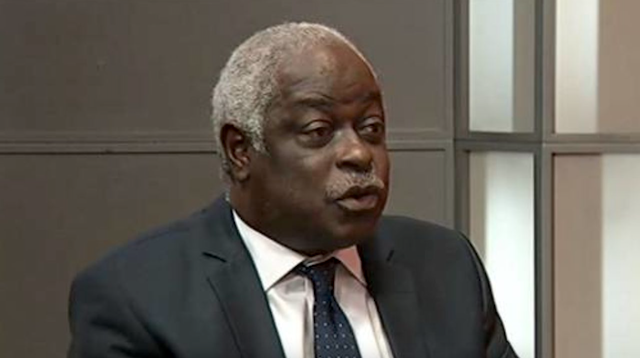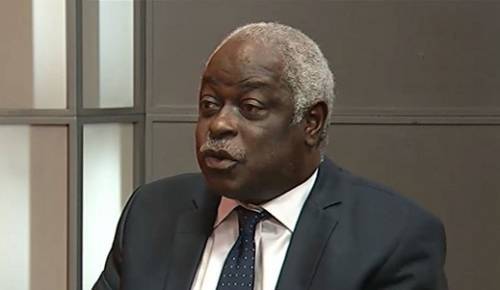“Only the love of God can rescue us”.
Bolaji Ogundimu had only recently been appointed as my secretary when she put in an application for a housing loan. I had put aside a lump sum of money that could be borrowed by my staff interest-free. This was operated as a round-robin. As some pay back every month, new loans could be disbursed.
However, Bolaji’s chances of getting a loan in the short term were slim because many others were in the queue before her.
But then two “good Samaritans” came to see me. They insisted that Bolaji should be given a loan right away.
What kind of favouritism is this, I wondered? “Bolaji has just applied,” I pointed out. “There are so many others who applied before her and are yet to receive. How could you, in good conscience, argue that she should leapfrog over those she met in the queue? Won’t people say she is being favoured because she happens to be my secretary?”
Bolaji’s “lawyers” were not easily dissuaded. “The problem,” they said, “is that Bolaji’s condition is a bit desperate. We have seen where she lives and feel something needs to be done for her very urgently.”
“How would you feel,” I asked them, “if you were one of those who applied before Bolaji? Would you be so understanding then?”
I put my foot down. “We must do things by the book. We must be fair and be seen to be fair. Bolaji will be given a loan when it is her turn. In the meantime, there is nothing I can do.”
Guilty as charged
I was on a trip to New York when the Lord revisited the issue of Bolaji’s housing loan. Suddenly He asked me:
“Femi, do you love Me?”
“Of course, I love you,” I replied immediately.
But then the Lord continued: “Femi, you don’t love Me.”
I was nothing less than devastated.
“How could you say I don’t love you?” I protested.
“So how come you did not give My son a housing loan?” He continued.
Then I knew I was really in trouble. When the Lord reprimands you concerning someone and then refers to that person endearingly as “My son,” you know you are really in trouble. If the Lord calls Bolaji (who happens to be a woman) “My son,” what does that make me?
“But Bolaji is not qualified for the loan,” I insisted. “There are many other people in the queue before her.”
“What would qualify Bolaji for the housing loan?” the Lord wanted to know.
By this time, I was past argument. My face was simply covered in tears. The Lord pointed out that He had sent two people to me to impress on me the deplorable state of Bolaji’s housing condition. Nevertheless, I failed to respond out of adherence to my so-called principles of fairness.
Then came another bombshell. “You have to make up your mind whether you are going to follow your principles or follow Me.”
I cried non-stop for the next two days. It was deliberately on a weekend, and I could not reach Bolaji until Monday, as she did not have her phone. On Monday morning, I phoned her in my office to apologise to her. I asked her to forgive me for being insensitive to her housing situation.
I told her to take the money for her rent from my office safe, which she operated. “It is not a loan,” I said. “It is a gift from me.” That way, the procedure of the housing loan scheme was not violated. Nobody could accuse me of discrimination. But the love of God had found a way to deal with Bolaji’s urgent housing problem.
The set-up
I thought I was in the clear until the day I was leaving New York to come back to Lagos. First, I wasted some time by haggling with the taxi driver over the fare from Canarsie to John F. Kennedy Airport. It is normally 20 dollars, but he insisted it was 25. Then the queue at the Swiss Air check-in section was slower than usual.
When I finally got to the counter, there was a malfunction with the computer. The lady attendant sought the assistance of a supervisor, who came to fix the problem. I waited, while they discussed, analysed, and fiddled with whatever was on the screen. This went on for about twenty minutes when suddenly another gentleman came to announce that the counter was closed.
Closed? I could not believe my ears. “How could the counter be closed?” I protested. “I have been waiting here for the last twenty minutes while your colleagues have been trying to fix a fault on this terminal.”
I heard the man’s response correctly. I was supposed to hear him. He said to me: “According to the principles of Swiss Air, this terminal closes at six o’clock. Once it is six o’clock, no more passengers are taken on board the plane.”
The man was not one to argue. After he dropped this bombshell, he simply walked away.
I was in a panic. My situation had become rather desperate. I had only 100 dollars left on me. I could not afford to stay any longer in New York. I just had to get on that plane.
And then I heard that still small voice of the Holy Spirit. “So, Femi,” He asked, “how do you intend to get on the plane? They have principles too at Swiss Air.”
Reversal of fortunes
I had been set up by none other than the Holy Spirit. The Lord had brought about a reversal of fortunes. With the housing loan scheme, I was the one who had the prerogative of mercy (or so I thought). With my flight back to Lagos, I was the one in need of mercy. It was time to plea-bargain.
I told the Lord: “I thought you’ve forgiven me concerning Bolaji.” I pointed out that I had not waited until I got back to Lagos to make restitution for my heartlessness. I phoned Bolaji from New York and gave her the money.
“Please, Lord Jesus,” I prayed. “Only Your love can get me on this plane. Please get me on this plane for Your name’s sake.”
Just then a gentleman came and tapped me on the shoulder. He was wearing a Swiss Air uniform. “What seems to be the problem?” he asked. I gave him chapter and verse of everything, including the computer malfunction. “Don’t worry,” he said. “Come with me. But you are going to have to bring your luggage.”
I promptly put my luggage back on the trolley and followed this good Samaritan. This instrument of God’s salvation took me to the Swiss Air boarding gate, got me a boarding pass and put my luggage on the plane.
“Where are you from?” he asked me. I told him I was from Nigeria. He smiled and pointed out that he was from Kenya. I would not have guessed it because he was white. Then he said to me:
“The only thing I don’t like about Nigerians is that you always beat us in football.”
He then shook hands with me and went away.


![[Devotional] IN HIS PRESENCE: Can God count on you?](https://thenewsguru.ng/wp-content/uploads/2023/02/Screenshot-2023-02-21-at-5.48.27-AM.png)